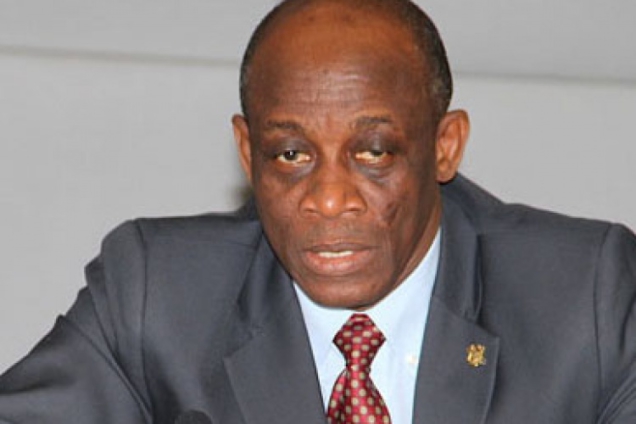Former Finance Minister, Seth Terkper, has reiterated his advice to government not to engage in what appears to be another "fiscal offset" in the 2023 budget, similar to what occurred in the government's 2017 budget.
In this context, Mr Terkper has called on government to disclose its plan for dealing with a large¢ 77 billion pipeline of arrears and contracts in the 2021 Budget Performance Report.
He noted that a similar plan was used to deal with the "single spine" wage arrears in 2020.
He has argued that given that budget overruns are at the core of most debt challenges, transparency and accountability in government finances are crucial for securing an IMF programme.
Moreover, they are also needed for sustainable economic growth and development.
Mr Terkper has argued that the treatment of the banking and energy sector bailout costs as memoranda items, rather than adding them to the country's deficit and public debt stock, create a false impression of fiscal consolidation.
The former Minister stated that this practice by government resulted in the rapid financial market rating downgrades of the country's sovereign bonds and eventual debt default, with the deficit revised upwards to 7% and 7.2% for 2018 and 2019 respectively when the IMF and ratings agencies adjusted Ghana’s fiscal deficit and public debt figures.
Mr Terkper recalled that in 2017, the incoming Akufo-Addo administration accused the John Mahama administration of overlooking arrears of about GH¢7 billion.
However, only about GH¢2 billion was carried forward to the 2017 fiscal year after an apparent offset of GHS 5bn against total expenditures.
At the time, Mr Terkper opposed the move in various articles and interviews.
In a similar move, Mr Terkper notes that the 2023 budget shows another apparent offset of GHS 22bn that also appears to reduce the deficit from about GH¢60 billion to approximately GH¢38 billion.
As with the 2.3% reduction in the budget or fiscal deficit in 2017, the repetition of the fiscal move results in a "paper" reduction of 3.7% of GDP.
The former minister has warned that this practice by government creates a false impression of fiscal prudence, which is unsustainable in the long term.
He has argued that such moves lead to a lack of transparency and accountability in government finances, which can lead to financial instability and economic turmoil.
Mr Terkper's concerns reflect a broader need for transparency and accountability in government finances in Ghana.
The government must address these concerns to build trust with its citizens, investors, and international partners.
Failure to do so could lead to further economic instability and harm the country's long-term economic prospects.
Latest Stories
-
OSP distances itself from purported letter on Ken-Ofori-Atta’s health status, says it hasn’t received it
5 minutes -
Kwabena Agyapong challenges OSP’s authority to declare suspects wanted
18 minutes -
10-years after June 3 Disaster: Nii Ashitei Ashietey calls for bold action to end perennial flooding
27 minutes -
Ten Years On: June 3 disaster survivors share painful memories and call for civic responsibility
34 minutes -
Ibrahim Tanko reflects on tough loss to Kotoko, eyes bounce back against Berekum Chelsea
51 minutes -
2028 Presidential Elections: The Lion and the Mosquito set for epic presidential showdown
55 minutes -
Albert Amoah eyes Golden Boot after stunning hat-trick against Medeama
59 minutes -
Two UniMAC-IFT students travel to Germany for exchange programme
1 hour -
BoG rolls out new set of regulatory measures targeted at interest charges, pricing, and recapitalisation of banks
1 hour -
OSP insists it has no medical report on Ken Ofori-Atta
1 hour -
‘Machomen’ with guns and knives were bused by Holy Stars to match centre – Nations FC alleges
1 hour -
We’ve been fair to Ken Ofori-Atta but he remains unwilling to appear – OSP
1 hour -
Man Utd captain Bruno Fernandes rejects Al-Hilal move
2 hours -
Cedi begins week strongly; Gains nearly 50% in value to dollar, one dollar equals GH¢10.98
2 hours -
Automobile artisans urge gov’t to support establishment of workshop facilities
3 hours

